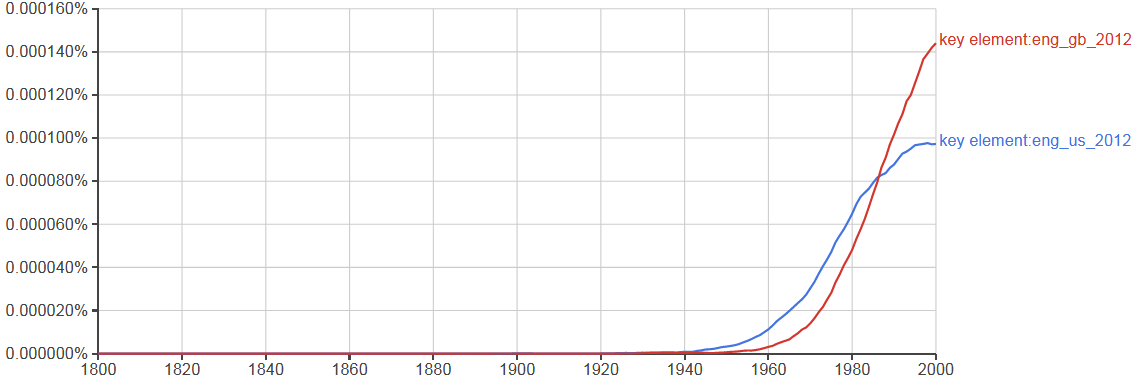As an adjective, key can mean "Of crucial importance" (Oxford). For example: the key facts are the most important facts, or a key worker is an employee whose role is especially vital.
In British English, key in this sense is every bit as common and well-understood as crucial would be. There are some stock phrases where it's especially familiar, but it's not limited to those; you could put it in front of any noun (say, key elephant) and, with the right context, it would make perfect sense ("the matriarch is the key elephant to protect from poachers").
Many years ago, when I was a rookie, someone much more experienced told me that I shouldn't use key as an adjective because "Americans don't understand it". I've been carrying that "fact" with me ever since then – and was just about to impart it to someone else the other day, when I paused to wonder whether it's actually true.
I can obviously see that the meaning is listed in American-centric dictionaries (e.g. Merriam-Webster), but that doesn't help me understand whether it's a common use or an obscure one. I can't find anything about it in any online American style guide but, again, that might mean it's completely uncontroversial or it might mean it's utterly obscure. And the fact the word key has so many different meanings makes it a difficult one just to Google for!
So, can anyone help please?

